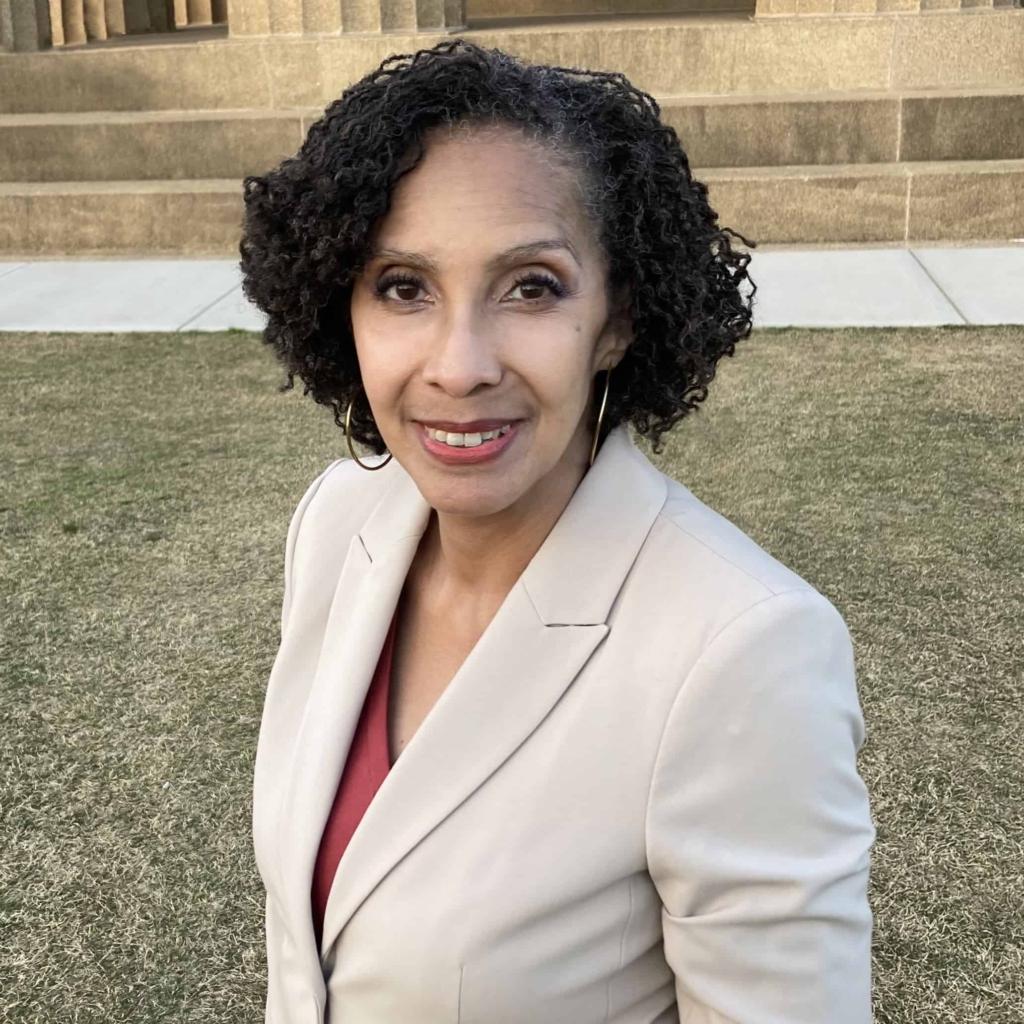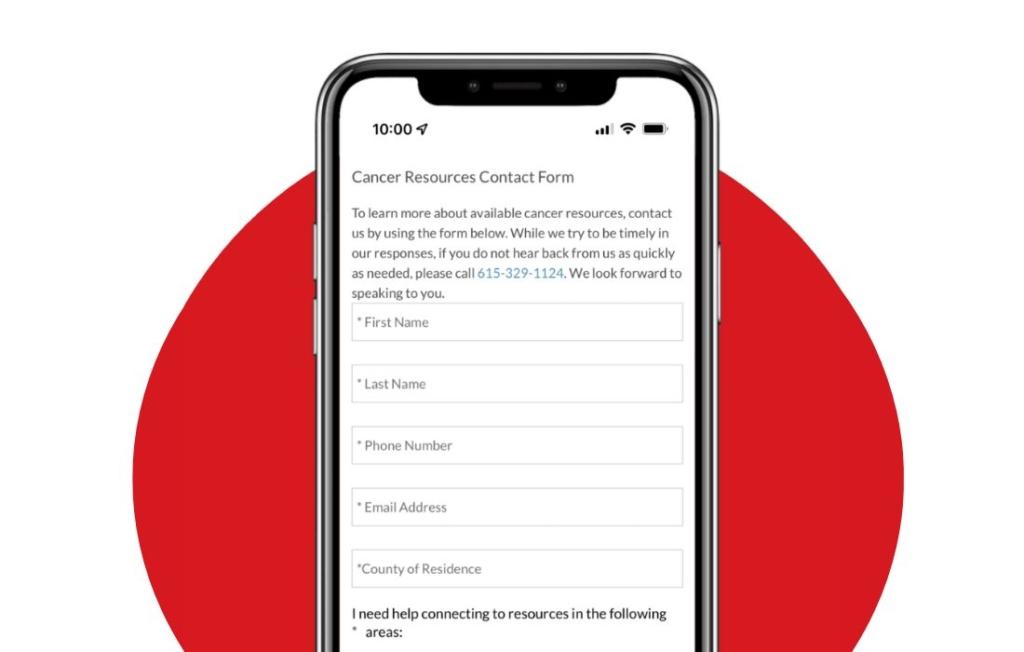Close your eyes and think about the things that come to mind when you think of Gilda’s Club. Maybe you are imagining support groups, yoga classes, expressive art workshops, or maybe you are even picturing Gilda Radner herself. All of these are accurate, but did you know that we also provide resource referrals to anyone affected by cancer in any way, regardless of whether they are members of Gilda’s Club?
Today we are introducing you to two of the first faces you will get to know when you reach out to Gilda’s Club, Lynae Smith, MSSW and Angela Hurston, LMSW. Angela and Lynae not only lead support groups, but they also facilitate our Virtual Orientation Sessions and manage our resource requests. In other words, they are amazing.
As Program Managers and Cancer Resource Specialists at GCMTN, they are responsible for orienting new members, assessing their psychosocial needs, then collaborating with members on a plan to support those needs. The plan may include joining a support group, referrals to community resources like financial assistance, transportation, or meal delivery, and participating in the Gilda’s Club community through a variety of activities.


Tell us about your Gilda’s Club experience. What brought you here?
Angela
I was familiar with Gilda Radner and remembered the organization being discussed in the news in the 1980s. In 2018, I discovered Gilda’s Club Middle Tennessee by accident while Googling for something else. As someone who’d lost a child to neuroblastoma, I was really impressed with the programming that supports whole families. I decided right then to seek an internship here if admitted to graduate school.
In 2019, I began the Masters of Science in Social Work program at the University of Tennessee’s College of Social Work. Once I reached my clinical year in 2020, I interviewed for an internship, and I have been at Gilda’s Club ever since. And yes, I began right when the pandemic hit! I was disappointed at first to be working from home instead of The Clubhouse. At my first staff meeting on Zoom I remember how welcomed I felt, but most of all I recall warmth and laughter. I quickly realized the Zoom screen was no obstacle to the sense of the community at Gilda’s Club.
Lynae
While searching for an internship for graduate school, my Field Coordinator suggested Gilda’s Club, which at the time I had never heard of. I looked up the website and was immediately amazed with everything that Gilda’s Club offered and represented. I wondered how I had never heard of Gilda’s and wished that I had known that this kind of community existed before. I went through the interview process and was ecstatic when I was offered the internship position. My experience here as an intern was incredible, so much so that I didn’t want it to end, so when I was offered the opportunity to continue working here, I happily accepted.
If you or a loved one have been through the cancer experience, you know how overwhelming it can be to navigate doctors’ appointments, treatment decisions, and the general uncertainty that a diagnosis may bring. It can be difficult to know where to start!
That’s where GCMTN comes in. A resource inquiry call or email is frequently a member’s first point of contact with us.
As Cancer Resource Specialists, Angela and Lynae link individuals and families impacted by cancer with community resources.
Three great reasons to lean on Gilda’s Club for resources:
- As with any Gilda’s Club program – our resource requests are always free of charge.
- You do not have to be a member to request or receive resource information. Simply give us a call or fill out our online form.
- While we are located in Nashville, we serve people from all over Tennessee and beyond.
Here is an example from Angela on what a resource request may encompass.
Angela
Every day I am gratified by the connections I make with members and our staff. Recently, I assisted a military veteran who’d been traveling from a nearby county to the VA hospital in Nashville for cancer treatment. We’d spoken on the phone to discuss his resource needs, but I invited him to stop by the Clubhouse for a quick tour while he was in town. After spending time checking out our Cancer Resource Library, he was so thankful to find a stack of free informative booklets and a free COVID test kit, too. Later, I was able to locate an integrative care clinic in his hometown where he could connect with a VA social worker without driving to Nashville. When I followed up the next week, he was relieved he had met with a VA social worker who was helping him navigate his benefits and apply for programs. It was quite satisfying to connect him with resources he didn’t know were available to him as a veteran. And furthermore, to save him the long trip to Nashville to access VA social services.
As noted above in Angela’s anecdote, these resources can be anything from transportation or financial assistance information to guidance on how to talk to children about cancer.
What are some of the most common requests you get in your roles?
Lynae
The most common resource request that I’ve gotten is for financial assistance, like with rent, gas, food, and utilities, etc. Meal delivery services and guidance on nutrition for during and after treatment are also common. Another common request is for understanding, whether that understanding comes from an educational website/booklet to answer people’s questions about cancer, or people are looking to be understood by others who know what they are going through.
Angela
The most common request is for financial assistance. As expected, this may be for help with medical bills, copays, costs of cancer treatment, medical equipment/supplies, or travel and lodging for out-of-town treatment. But we often have inquiries for general financial assistance for living expenses such as utilities, rent, mortgage payments, and food. Cancer patients and their families have been hit especially hard by the lack of affordable housing in Nashville with many facing rents they can no longer afford and at the same time they are losing income due to prolonged illness. Finding affordable housing for the displaced has been the most challenging resource to find. Besides financial assistance, we link to resources for emotional support, nutrition, meal delivery, disability, children’s camps, and more. We are continuously searching for new resources and expanding our directory in an effort to fulfill the needs of the growing Middle Tennessee cancer community.
Our goal is to support people impacted by cancer in ways that best suit their needs. Sometimes that’s connecting a member to a support group, and other times it might be linking them to a much-needed resource.
Fill out the Resource Request Form
Not quite ready to take the leap into a resource request? Check out our Virtual Resource Guide. This guide was curated specifically by our program team and is full of free and accessible remote resources.
